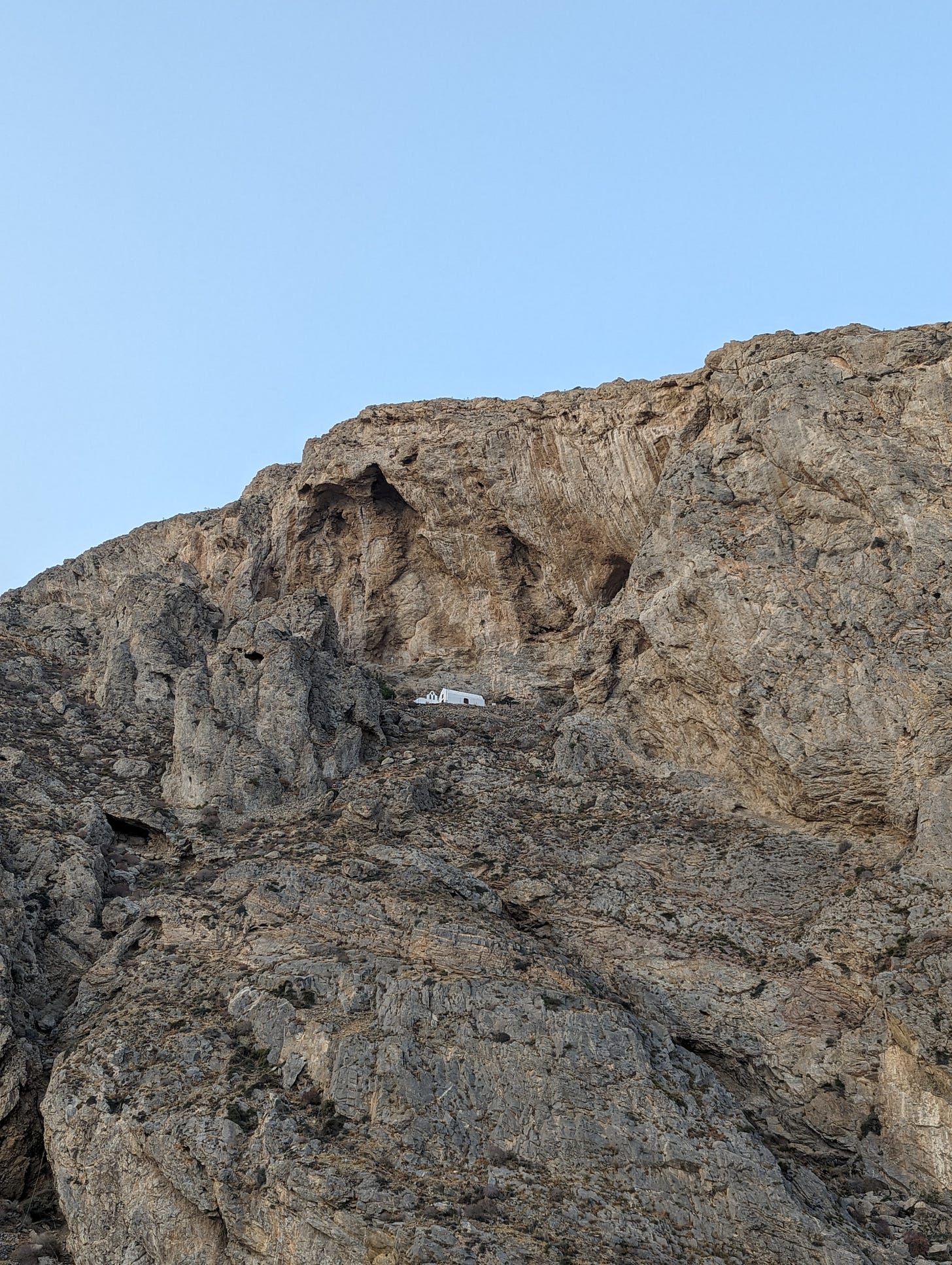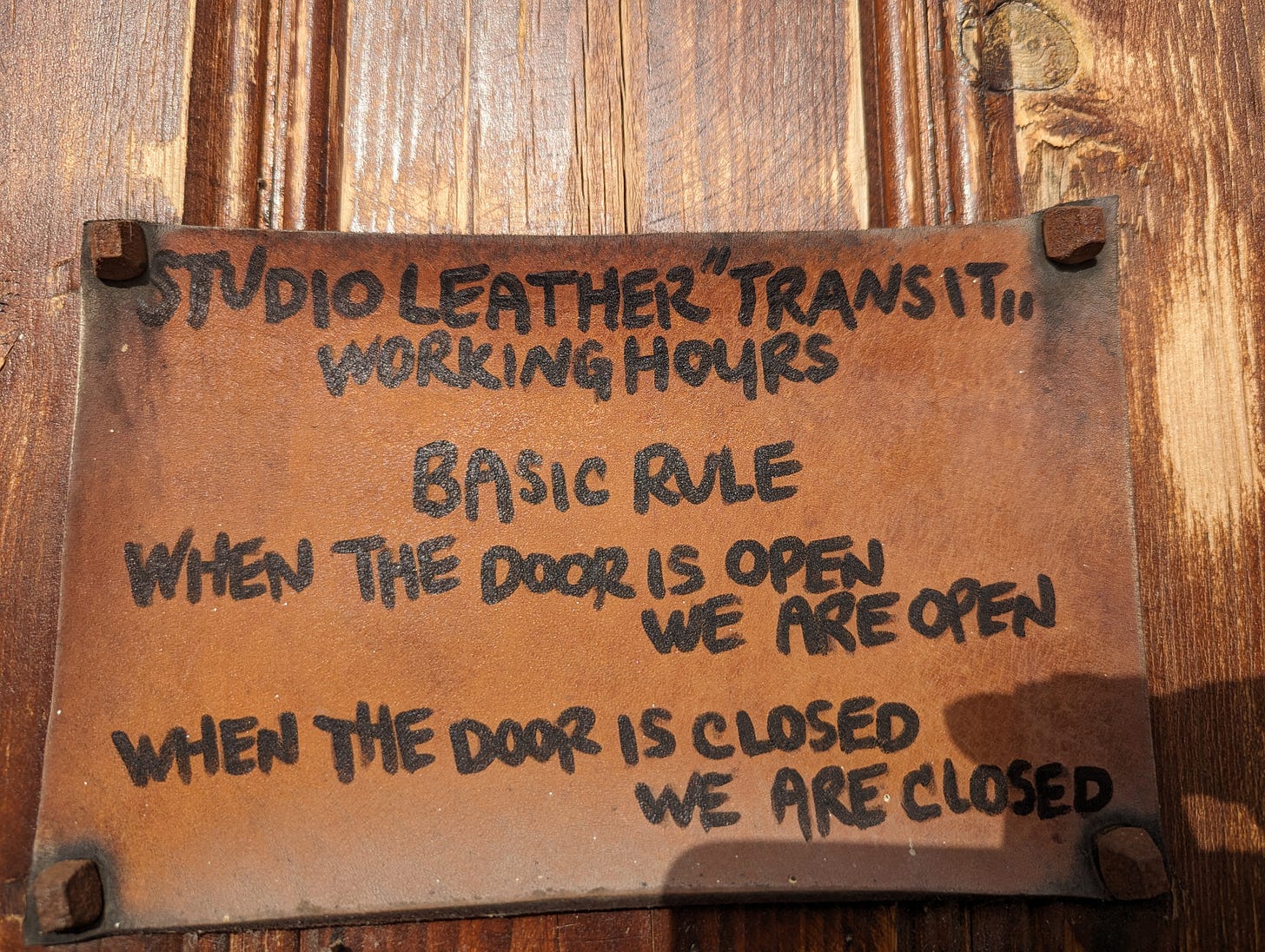How to discover spacetime
Summer in Europe stretches like taffy. Long days spent strolling through pedestrian zones, long nights spent sitting at pubs or cafes watching the nightlife, and short flights that take you from blazing hot sunshine and biodynamic desert vineyards and drop you in the middle of the last millennium as clocks ring out from stone towers.
We are a civilization obsessed with time. It fills our metaphors, preoccupies our minds, we’re always finding it, keeping it, saving it, stretching it, wasting it or losing it. But as Einstein once told us, any discussion of time without a discussion that’s also about space is eventually meaningless. Spacetime is the four-dimensional context of all our experience in this world. Living linearly in time, or statically in space, is inherently stifling.
BUT enough abstractions. Let’s get real, and talk about what it means to discover that spacetime within which we exist in some practical ways.
Spacetime in your suitcase
How do you pack for eight cities (seven countries) and one month of travel, with only carry-on luggage? Especially when the cities range from London (15 oC, raining) to Santorini (32 oC, blazing sunshine) to Delhi (45 oC, eek!)
Years of practice help, but ultimately it’s a question of mindset. Do I really need that slightly disintegrated underwear or can I give it one last trip and discard it along the way? It might rain, but is an umbrella worth the space it takes? If all my clothes are in a single, unified palette, I can mix and match a few different outfits so that the tank top I wear in Santorini becomes one layer of a heavier outfit in Prague. I can use up moisturizer and sunscreen on one trip and buy another round at the duty-free. For that matter, I can buy anything I actually need and don’t need to pack anything but my passport, wallet and phone.
At first this seemed like a lot of cognitive load–wouldn’t it just be easier to check a bag? It depends. That’s a different kind of cognitive load. Then you’ve got to think about baggage fees and delays and what happens if Easyjet and Smartwings dock at different terminals than British Airways? But ultimately, travel like this is about leaving behind the old and making space for something new, which means not lugging around too much stuff I already have, and being ready for anything I do have on me to be lost or destroyed.
(Below: my favorite way to gain spacetime visually is framing small manmade constructs against large natural landscapes, e.g. boat in water)
Spacetime in your body
I spend hours every day bent over a laptop. I wrote over 5,000 words today. And this is when I’m on vacation. To sustain this day after day, year after year, I need to invest just as much in creating space in my body. I do pilates, stretches and massages regularly. This trip is, in some ways, a spa-hopping tour. But it’s only recently that I realized you’re supposed to be able to bend at your thoracic, not just at your waist, and that your muscles aren’t supposed to be locked up around your joints. The other day I reached for a cup on the top shelf and reached it without needing to stand on tiptoe. It made me happy but also made me wish I’d started to work on my body decades ago.
(Below: imagine living up there, and the shape your body would be in if you did).
Spacetime in your mind
This has been the hardest one. It is, after all, why I’m on a 2-month leave from work, because my mind has been too full lately. There’s a look I see sometimes on people’s faces when they receive new information. They freeze up, almost holding their breath, and then blink. It’s a look that says they’re full already and you’re coming at them with a firehose.
At work, this is usually when I pause the current flow of the meeting and say something like, “Let’s take a step back. I think xyz term might be new to some people,” or, “Let’s do a round of introductions and context setting.” I call this technique, “Start from page one, every time.” But I find that most people have no idea what I’m talking about. I think it’s because most people are barely keeping up with the information firehose as it is, that they don’t have room in their minds to account for what everyone else in the room does or does not already know. They’re reciting what they know without pausing for breath, almost as if they’re afraid of forgetting it before they can pass on the info dump to someone else.
Writers do it too. We work out the story in our heads and then dump it all as exposition, as if we’re afraid we’ll lose it if we don’t write it down. The instinct is right (writing stuff down or telling someone else is a great way to create room in your short-term memory for other things) but there’s a better way. Cultivating an organizational system for information you know you won’t remember long-term, while cultivating long-term memory for the things that actually demand it can clear your head like magic.
What do I mean by this? I don’t bother remembering the stuff of TODO lists: the many errands that need doing, the stuff that I meant to do today but must happen tomorrow. That’s what a notebook is for. I don’t remember or anticipate travel schedules, events and appointments. That’s what a calendar is for. I don’t remember all the various administrative things that eat up spacetime–that’s what spreadsheets are for.
I do remember every story I’ve ever read. When I was younger, I used to worry that I could only read so many stories in my life, because I’d have to forget old ones to remember the new ones. But our minds are not hard-drives. They are wired for story. The ancients could remember and recite epic poems because stories have internal logic that chains events together. If you remember the beginning of a good story, you remember everything else, because it follows naturally.
New stories do not have to displace the old ones. They can be superimposed upon them, they can be retellings, reimaginings, alternate universes, countless trails through an endless forest of possibility. Stories are how the mind expands, until we come into our true inheritance of infinite spacetime.



